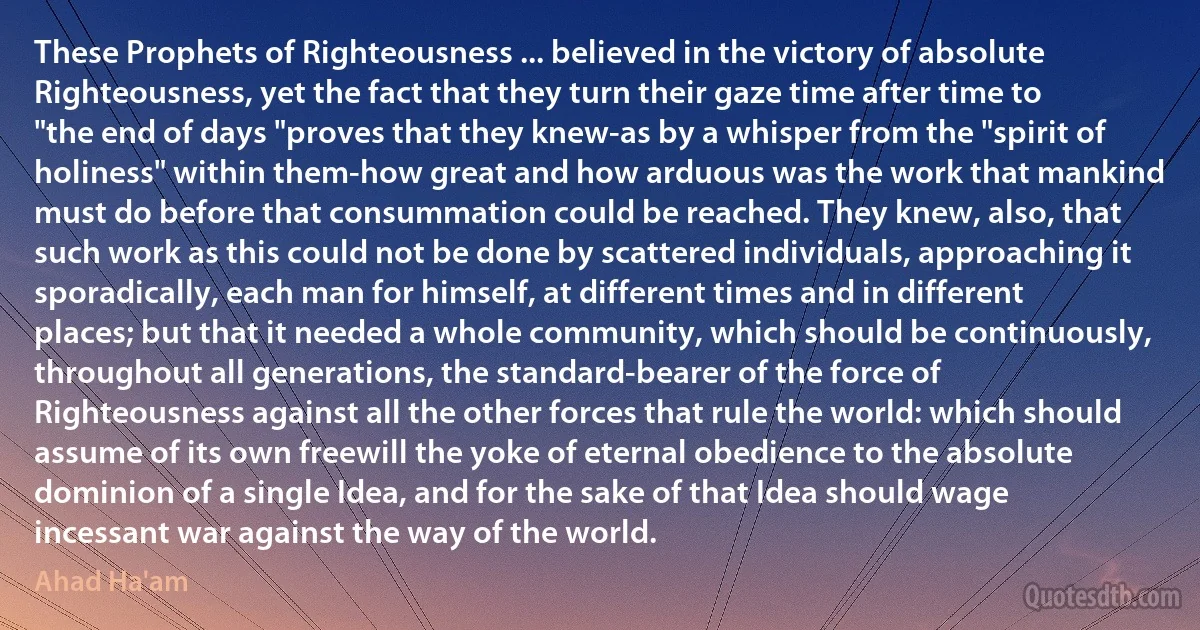Obedience Quotes - page 11
A culture fixated on female thinness is not an obsession about female beauty, but an obsession about female obedience. Women's dieting has become what Yale psychologist Judith Rodin calls a 'normative obsession,' a never-ending passion play given international coverage out of all proportion to the health risks associated with obesity, and using emotive language that does not figure even in discussions of alcohol or tobacco abuse. [...] Dieting is the most potent political sedative in women's history; a quietly mad population is a tractable one.

Naomi Wolf
The egg is breaking, the chromosomes are splitting to go forward with a new pattern of life. Those of us who seem most alien... are the ones who are going forward to create the life as yet inchoate. We who are affected cannot make ourselves clear... This is the era when apocalyptic visions are to be fulfilled. We are on the brink of a new life, entering a new domain. In what language can we describe things for which there are as yet no new names? And how describe relations? We can only divine the nature of those to whom we are attracted, the forces to which we willingly yield obedience....

Marilyn Ferguson
After settling the affairs of Ajmir, the conqueror marched "towards Dehli (may God preserve its prosperity and perpetuate its splendour!) which is among the chief (mother) cities of Hind. When he arrived at Dehli, he saw " a fortress which in height and strength had not its equal nor second throughout the length and breadth of the seven climes." The army encamped around the fort. " A torrent of blood flowed on the field of battle, and it became evident to the chiefs that if they did not seek for safety from the sword of the king of the earth, and if they should deliver into the hands of Satan the time of option and the reins of good counsel, the condition of Dehli would be like that of Ajmir; so from the dread of kingly punishment, the Rai and mukaddams of that country placed their heads upon the line of slavery, and their feet within the circle of obedience, and made firm the conditions of tribute [mdlguzdrt) and the usages of service.

Muhammad of Ghor
We don't love Jesus enough. If you go to church, you know He loves you, because you hear it all the time. But do we love Him? I know I don't tell Him enough. As part of my personal relationship with Jesus, when I get up in the morning, I tell Him, "I need you to know I love you.” And, forgiveness the heart and soul of the movie: forgiving at all costs. It's hard for Christians, whether we're working in the film business, or living in the Third Reich, but that's why we're Christian. Our Lord has told us to pray "... forgive us our trespasses, as we forgive those who trespass against us...” We may feel this is hard, but how we feel has nothing to do with it. What is important is obedience; we must obey Christ's command. Is following Christ's command easy? No. But it is the way of the great.

Jim Caviezel
Wars always were contests of similar competing powers, and the deepest structure of society remained the same, whether one won or the other. Contests of classes are fights for new principles, and the victory of the rising class transfers the society to a higher stage of development. Hence, compared with real war, the moral forces are of a superior kind: voluntary devoted collaboration instead of blind obedience, faith to ideals instead of fidelity to commanders, love for the class companions, for humanity, instead of patriotism. Their essential practice is not armed violence, not killing, but standing steadfast, enduring, persevering, persuading, organizing; their aim is not to smash the skulls but to open the brains. Sure, armed action will also play a role in the fight of the classes; the armed violence of the masters cannot be overcome in Tolstoian fashion like by patient suffering. It must be beaten down by force; but, by force animated by deep moral conviction.

Antonie Pannekoek
Collaboration of equal companions replaces the command of masters and the obedience of servants. The sense of duty, the devotion to the community, the praise or blame of the comrades according to efforts and achievements, as incentives take the place of fear for hunger and perpetual risk of losing the job. Instead of the passive utensils and victims of capital, the workers are now the self-reliant masters and organizers of production, exalted by the proud feeling of being active co-operators in the rise of a new humanity.

Antonie Pannekoek
Then there is the common and fundamental justification of government that it exists to protect citizens against the anarchic jungle that would otherwise threaten their lives and property. Such archaic or sterile views show no appreciation of democide's existence and all its related horrors and suffering. They are inconsistent with a regime that stands astride society like a gang of thugs over hikers they have captured in the woods, robbing all, raping some, torturing others for fun, murdering those they don't like, and terrorizing the rest into servile obedience. This exact characterization of many past and present governments, such as Idi Amin's Uganda, hardly squares with conventional political science.

Rudolph Rummel
The greatest and best of honours that I obtained through God's mercy was, that by my obedience and piety, and friendliness and submission to the Khalifa, the representative of the holy Prophet, my authority was confirmed; for it is by his (Caliph's) sanction that the power of the kings is assured, and no king is secure until he has submitted himself to the Khalifa, and has received a confirmation from the sacred throne.

Firuz Shah Tughlaq
The communist peasant-nationalist regimes of Asia, relying on the Führerprinzip, extreme ethnocentric nationalism, and racism (and the ultimately grotesque in antimodernism in the case of the Cambodia of the Khmer Rouge) seem to some to represent the fascistization of communism. There is no doubt that, as discussed earlier, fascism and communism share many fundamental characteristics, and Russian spokesmen delight in applying the same words to China as to Nazi Germany: ‘petit bourgeois' policy, ‘bourgeois nationalism,' ‘military-bureaucratic degeneration,' ‘subservient obedience' of the masses, ‘anti-intellectualism,' ‘voluntarism,' ‘subjectivism,' ‘autarchic' policies that try to place ‘surplus population' on ‘foreign territories,' concluding that ‘the Maoist approach in no way differs from fascism.

Stanley G. Payne



